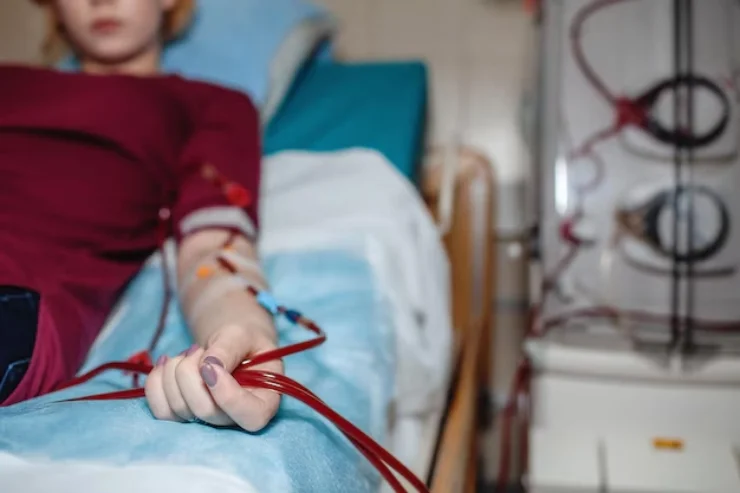Hemodialysis Care

Hemodialysis Care
Hemodialysis is a life-saving procedure for patients with end-stage renal disease (ESRD) or severe kidney failure. It removes waste, toxins, and excess fluids from the blood when the kidneys are no longer able to perform these functions. Proper care before, during, and after hemodialysis is crucial to ensure its effectiveness and prevent complications.
Pre-Dialysis Care
- Access Site Care:
- Maintain cleanliness and avoid pressure or injury to the arteriovenous (AV) fistula or graft.
- Check for signs of infection, such as redness, swelling, or warmth.
- Hydration and Diet:
- Follow a renal diet with controlled fluid, potassium, sodium, and protein intake as advised by a dietitian.
- Medications:
- Take prescribed medications and inform the care team of any new drugs to prevent interactions.
During Dialysis
- Monitoring:
- Vital signs are closely observed to detect any adverse reactions.
- Comfort Measures:
- Wear loose, comfortable clothing.
- Report any unusual symptoms, such as dizziness, cramping, or shortness of breath.
Post-Dialysis Care
- Rest and Recovery:
- Mild fatigue is common; rest if needed but stay active when possible.
- Monitor for Complications:
- Watch for signs of bleeding from the access site or symptoms like fever, which may indicate infection.
- Follow-Up Appointments:
- Attend regular consultations for ongoing assessment and adjustments to the treatment plan.
Lifestyle Tips
- Adhere to dietary restrictions and fluid limits.
- Avoid smoking and alcohol.
- Maintain good hygiene to prevent infections.
Proper education and adherence to care guidelines enhance the quality of life and outcomes for hemodialysis patients.